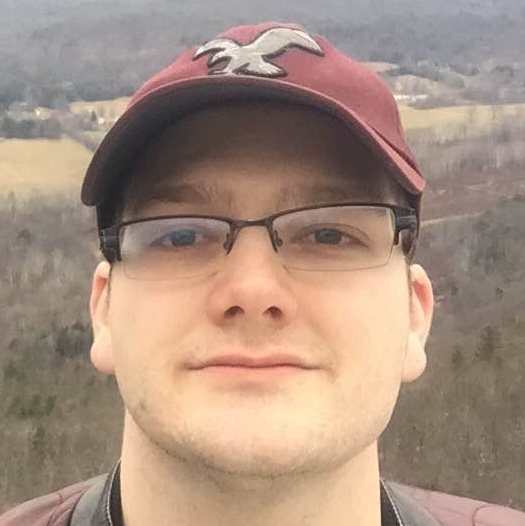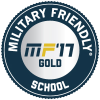Brendan Swigart ’10 (Asian Studies)
 Linux Systems Administrator, Barnard College at Columbia University
Linux Systems Administrator, Barnard College at Columbia University
My current line of work at Barnard focuses on IT Engineering within the BCIT Infrastructure group, where I am currently the group's primary Linux administrator. On a day-to-day basis, I am responsible for researching, testing and implementing new and emerging systems and server technologies. I document all IT systems, policies and procedures and administer daily system maintenance procedures for the network. I am the primary contact for backup operations for Barnard. Basically, my team handles all back-of-the-house operations ranging from authorization/authentication, security, updates and upgrades as well as operating the College’s email, web services, applications, file and other servers, and storage arrays. I specialize in the Powershell and Bash scripting languages as well as Red Hat Enterprise Linux.
I graduated from the Asian Studies program at SUNY New Paltz in 2010, and focused primarily on Japanese Language and Culture. I also studied abroad at Nagasaki University of Foreign Languages during the 2008-2009 academic calendar.
My studies at SUNY New Paltz didn't directly prepare me for work in IT. In 2012, I decided to go back to school for Information Systems at Peirce College utilizing their online program. During that time, I interned with a local repair shop called Tech Smiths located in Kingston, NY. During my internship, I primarily serviced AppleCare warranties and became an Apple Certified Macintosh Technician. I graduated from Peirce in 2013 and was quickly recruited to work for The Mohonk Mountain House where I did help desk and junior systems administration. While there, I earned CompTIA's Network+ and Security+ certifications as well as became a Linux Foundation Certified Systems Administrator. In January of 2015, I accepted my current position with Barnard.
Although my degrees helped, the practical skills I obtained through my certifications are ultimately what led to me acquiring my current career position. However, this does not demean the value of a liberal arts education. My BA has served me well both in life and the job market.
To me, a liberal arts education helped me best by developing my soft skills. In particular, learning a foreign language like Japanese has aided me immeasurably in mastering programming and scripting languages like Bash and Powershell. I also attribute my interpersonal communications and collaborative attitude to the education I received at SUNY. Another benefit is that (in a hard science industry) I stand out from my competition. On nearly every interview I have been on, the interviewers always had questions relating to my liberal arts education on top of my science degree and skills. I have always been able to tie the two disciplines together proving the best of both worlds. Finally, my education at SUNY New Paltz taught me how to learn quickly and adapt.
On a personal level, the degree program also enriched my understanding of the world. Through my study abroad, I was able to experience an entirely different way of life while combining it with my studies and interests. The diversity I experienced prepared me for the workplace by heightening my understanding of people and how they operate culturally as well as societally.
Even though I am not using my degree directly, it has been a great benefit to me for a plethora of reasons. Given the chance to do it all over, I wouldn't change a thing.
April 2016
Jason Serrano ’15 (Asian Studies)
 English Language Instructor (Japan)
English Language Instructor (Japan)
Currently, I am an English language instructor for a Japanese eikaiwa (English Conversation School) in Tokyo, Japan. As an instructor my primary duties are teaching lessons to a wide-range of age groups and skill levels. My students range from babies who barely even speak their native language all the way up to retirees who still remember the aftermath of World War II. As such, I really have to be able to cater my lessons to my students and keep their current skill level in mind. The techniques I use to teach each class also differ based on the goals of the class (grammar-based, vocabulary-based, conversation and fluency, etc.). It requires a lot of juggling, a lot of preparation, and a lot of patience!
It's also a lot of fun. I am also required to act as a mentor for my students, understand their personal goals and help guide them. This requires an understanding of what it means to learn a foreign language and also the highs and lows of the process. I have to be constantly aware of cultural differences, but also the individual differences that crop up among my students. I have to bear the same thing in mind when working with my staff (the majority of whom are native Japanese), and teaching students who are Japanese citizens but come from different backgrounds such as Chinese, Korean, etc.
I believe my studies at New Paltz have been a tremendous asset. As an Asian Studies major, I studied the cultures and histories of Asian countries, which allows me to have appreciation and understanding for cultural differences. By understanding Asian history, I'm also able to understand the varying viewpoints of my students and address them with compassion and sensitivity. It also provides a common ground for us to build on -- it's always rewarding to see a student's surprise when I know something about their culture or history that they didn't expect a foreigner to know!
I studied Japanese while at New Paltz and as a passionate language-learner, I understand how much fun taking on a new language can be, but I also know the frustrations: the plateaus, the lapses in memory, etc. I can use these moments to build a connection with my students and share tips to help them along the way.
In the end though, I have to be a jack of many trades. I have to be an English teacher, a mentor, a salesman (occasionally), and knowledgeable about world politics, cultures, history and pop culture. A liberal arts education at New Paltz taught me to be flexible and gave me the tools to be prepared for a variety of situations while working abroad.
To me, a liberal arts education is about keeping your mind flexible. While there are many other paths complete with their benefits, I believe the world is constantly evolving. By finding a path in the liberal arts that appealed to my interests, I have been able to market myself in many different ways. I know about culture, history, international relations, business cultures in comparison, and each of those things have helped me meet many amazing people along the way. Prior to working in Japan, I interned at the Japan Society in New York City and met many incredible people and great connections. I also now know many people around the world from many walks of life. In the end, whatever path you take it is up to you to find how to mold and market yourself to be a valuable asset in the world. With that said, I think liberal arts has helped keep my experiences interesting, unique and diverse.
April 2016

 Linux Systems Administrator, Barnard College at Columbia University
Linux Systems Administrator, Barnard College at Columbia University English Language Instructor (Japan)
English Language Instructor (Japan)





